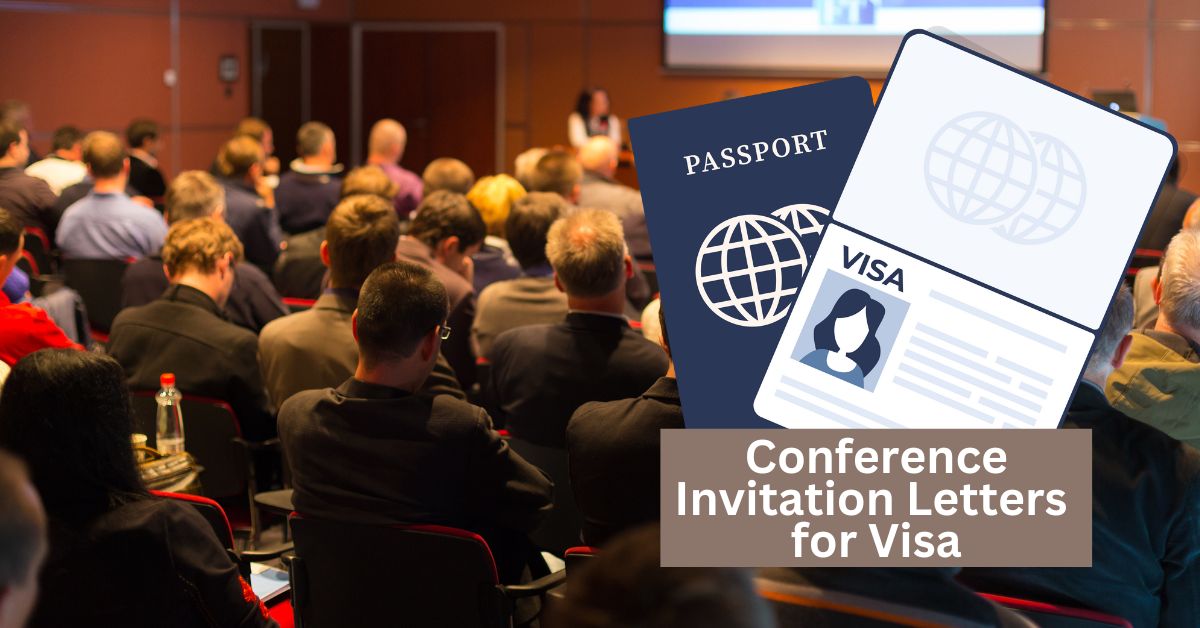Registering for a conference in Asia is an exciting opportunity to engage with industry experts, expand your knowledge, and network with peers from around the world. Conferences spanning various fields—from technology and healthcare to education and business—Asia has become a prominent destination for professionals seeking to enhance their skills and explore new ideas. Registration process can sometimes be overwhelming, especially with different formats and requirements. Steps and essential tips on how to register for a Conference in Asia, ensuring that you secure your spot and maximize your experience. First-time attendee or a seasoned conference-goer, understanding the registration process will help you make the most of your time in Asia. Attending a conference can be a transformative experience, providing opportunities for networking, professional development, and learning about the latest advancements in your field.
1. Researching Conferences
1. Identify Your Interests
Registration process, determine which conferences align with your professional interests and goals. Asia offers a wide array of conferences covering various fields, including technology, healthcare, education, business, and the arts.
- Your professional goals: Network, learn new skills, or present your research?
- Relevant topics: What are the current trends in your industry?
- Desired outcomes: What do you hope to achieve by attending the conference?
2. Use Online Resources
Have a clear idea of what you are looking for, utilize online resources to find suitable conferences. Some reliable platforms include:
- Conference Alerts: A comprehensive website that lists upcoming conferences across various fields.
- Academic Journals: Many journals have sections dedicated to upcoming conferences relevant to their field.
3. Check Conference Details
After identifying potential conferences, check the following details:
- Dates and Location: Ensure that the conference dates fit your schedule and that you can travel to the location.
- Topics Covered: Review the conference agenda to ensure that it aligns with your interests.
- Keynote Speakers and Sessions: Look for prominent speakers or sessions that pique your interest.
- Registration Fees: Note the costs associated with registration, including early bird discounts or group rates.
2. Understanding the Registration Process
1. Registration Types
Most conferences offer various registration types, which can include:
- General Admission: Access to all sessions and networking events.
- Student Discounts: Reduced rates for students or early-career professionals.
- One-Day Passes: If you can only attend a specific day of the conference, this option allows for participation without full registration.
- Workshops or Additional Sessions: Many conferences have pre-conference workshops that require separate registration.
2. Prepare Necessary Information
To register, you may need to provide specific information, such as:
- Personal Information: Name, contact details, and organization.
- Professional Information: Your job title, field of expertise, and relevant affiliations.
- Payment Details: Credit card information or a request for an invoice if your institution will cover costs.
3. Create an Account
Many conference websites require you to create an account before registering.
- Providing your email address and creating a password.
- Confirming your account via email.
- Completing your profile with necessary details about your professional background.
3. Registering for the Conference
1 Online Registration
Chosen a conference and prepared the necessary information, follow these steps to register online:
1. Visit the Conference Website: Navigate to the official conference website, which usually contains detailed information about the event.
2. Find the Registration Section: Registration tab or button, typically located in the main menu or homepage.
3. Select Your Registration Type: Choose the appropriate registration category based on your needs (e.g., general admission, student).
4. Fill Out the Registration Form: Complete the required fields with your personal and professional information.
5. Choose Payment Method: How you wish to pay your registration fees. Many conferences accept credit card payments, bank transfers, or PayPal.
6. Review Your Information: Before submitting, double-check all information for accuracy.
7. Submit Your Registration: Click the submit button to complete your registration.
2. Confirmation of Registration
After submitting your registration, you should receive a confirmation email.
- Confirmation of your registration and payment details.
- A receipt for your records.
- Information on how to access the conference (e.g., links to virtual platforms if applicable).
- Instructions for booking accommodations or travel arrangements if necessary.
3. Registering by Mail or Phone
Register offline, many conferences allow registration via mail or phone.
- Obtain a Registration Form: Download and print the registration form from the conference website or request a form via email.
- Complete the Form: Fill out the form with your details.
- Payment Method: Include payment via check or credit card details as instructed.
- Mail or Call: Send the completed form to the address provided or call the conference organizers to register over the phone.
- Follow-Up: After registration, consider following up with the organizers to confirm your registration status.
4. Tips for Successful Registration
1. Register Early
Conferences often have limited spots and may sell out quickly, especially popular events. Registering early not only guarantees your spot but often allows you to benefit from early-bird pricing.
2. Join Mailing Lists
Subscribe to conference mailing lists to receive updates on registration, deadlines, and any changes in the agenda.
3. Check for Discounts and Scholarships
Conferences offer discounts for students, early-career professionals, or groups. Additionally, some conferences provide scholarships that cover registration fees for qualifying participants.
4. Prepare for Payment
Method is ready before starting the registration process. If your institution is funding your attendance, verify that you have the correct billing information.
5. Review Cancellation Policies
Conference’s cancellation and refund policies in case your plans change. Some conferences may offer partial refunds, while others may not allow refunds at all.
5. Making Travel and Accommodation Arrangements
1. Booking Flights
Once registered, start planning your travel. Consider the following:
- Flight Options: Look for flights to the nearest airport to the conference venue.
- Flexibility: Being flexible with travel dates can help you find cheaper options.
2. Accommodation
- Hotels: Check for hotels near the conference venue, as many conferences secure discounted rates for attendees.
- Alternative Lodging: Consider other options like Airbnb or hostels if you’re traveling on a budget.
3. Local Transportation
Research transportation options to and from the venue.
- Public transport options like buses or subways.
- Taxi services or rideshare options.
6. Preparing for the Conference
1. Create an Itinerary
Registered, create a detailed itinerary of the sessions and events you plan to attend. This can help you maximize your time and ensure you don’t miss key presentations.
2. Network Beforehand
Social media platforms like LinkedIn or attendees before the conference. This can help you set up meetings or meals and expand your professional network.
3. Pack Essentials
Don’t forget to pack essential items for the conference, including:
Business cards for networking.
- Notebooks or devices for taking notes during sessions.
- Appropriate clothing for the venue and any networking events.
7. Attend Conferences in Asia and Events!
Attending conferences and events in Asia offers a unique chance to connect with industry leaders, discover cutting-edge innovations, and deepen your expertise in a diverse and dynamic setting. As one of the fastest-growing regions for technology, business, and research, Asia hosts a vast array of conferences across various industries, making it a global hub for learning and collaboration. Networking with top professionals to gaining insights into emerging market trends, these events provide invaluable opportunities for growth and knowledge-sharing.
- International Conference on Global Business, Economics, Finance & Social Sciences ( ICGEFS-2024 )
- International Conference on Geological and Environmental Sustainability ( ICGES-2024 )
- International Conference on English Learning and Teaching ( ICELT-2024 )
- International Academic Conference on Development in Science and Technology ( IACDST-2024 )
- International Conference on Robotics, Smart Technology, Communication and Electronics Engineering ( ICRMTCEE-2024 )
- International Academic Conference on Engineering, Technology and Innovations ( IACETI-2024 )
- International Conference on Nanoscience, Nanotechnology and Advanced Materials ( IC2NM-2024 )
- International Conference on Recent Advances in Medical Science ( ICRAMS-2024 )
- International Conference on Psychology, Language and Teaching ( ICPLT-2024 )
- International Conference on Natural Science and Environment ( ICNSE-2024 )
- International Conference on Applied Physics and Mathematics ( ICAPM-2024 )
8. Benefits of Registering for a Conference in Asia!
Attending conferences can be a transformative experience, especially in a region as dynamic and diverse as Asia. Expand your professional network, gain insights into the latest trends in your industry, or showcase your own research, conferences offer unparalleled opportunities for growth and learning. Process of registering for a conference may seem daunting, especially with the myriad of options available across different countries and disciplines.
Registration process is crucial to unlocking the full potential of these events. In this guide, we will explore the benefits of attending conferences in Asia and provide a step-by-step overview of how to register effectively, ensuring you maximize your experience and make valuable connections.
9. During the Conference
1. Engage Actively
Opportunity to engage with speakers and fellow attendees. Ask questions during sessions and participate in discussions to maximize your experience.
2. Attend Networking Events
Conferences host networking events, such as mixers or workshops. These events are great opportunities to meet industry leaders and other professionals in your field.
3. Take Notes
Important insights and contacts you make throughout the conference. Reinforce what you’ve learned and serve as a valuable resource for the future.
10. After the Conference
1. Follow Up
Conference, follow up with new connections via email or LinkedIn. Express your appreciation for their time and share any resources or insights from the conference that may interest them.
2. Apply What You’ve Learned
Implement the knowledge and skills you gained from the conference in your work or studies. Reinforce the experience and benefit your career development.
3. Share Your Experience
Writing a blog post or sharing insights on social media about your conference experience. This not only reinforces your learning but also engages your network and informs others about the conference.
Registering for a conference in Asia can be an exciting journey filled with opportunities for growth and networking. Navigate the registration process with ease and prepare effectively for a successful conference experience.




